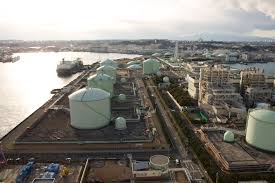-
Inpex CEO criticises Australian government policy on coal and gas as deal reached between parties
Date posted:
-
-
-
Post Author
Patrick LaveryCombustion Industry News Editor
-
-

Australia’s federal government has secured a deal with the Australian Greens party and various independents which will enable it to pass its climate legislation, legislation that will make it less likely that fossil fuel projects will go ahead. Under the coming legislation, companies and projects that are major emitters of greenhouse gases (currently 215 companies/projects covering around 30% of total Australian emissions) will be required to reduce their emissions on average by 4.9% per year to 2030, meaning a 30% reduction all together by that date. (Australia’s national emissions reduction target for 2030 is for a 43% drop on 2005 levels.) Companies and projects that fall under the legislation will be allowed to purchase carbon credits to meet their targets, but will have to explain to the government if they use offsets for more than 30% of their emissions reductions.
Greens leader Adam Bandt said of the deal reached that “We are now going to have for the first time ever in this country, a limit as to how much these corporations, including coal and gas corporations, can pollute. That is big.” A Minerals Council spokesperson said that they expected the legislation to have “minimal impact on the mining industry overall,” while the Australian Petroleum Production and Exploration Association said it was concerned that the legislation would deter future investment in the energy industry. Chief executive Samantha McCulloch said “We need to be bringing on new supply to put downward pressure on gas prices and to avoid projected shortfalls. It’s important that we’re not putting more obstacles in the path to that new investment.”
The deal comes at a time when Australia’s oil and gas industry is already facing strong criticism internationally, including because of government measures to require producers to abide by “reasonable pricing” indefinitely. Speaking to a private function at Australia’s parliament, Takayuki Ueda, the chief executive of Inpex, Japan’s biggest oil and gas producer, said that the “consequence of these well-intentioned policies will be that the increasing energy demand in our region will be met by coal and not by natural gas. The result will be much higher global greenhouse gas emissions and will make net zero by 2050 an impossible task. On the geopolitical front, Australia’s ‘quiet quitting’ of the LNG business has potentially very sinister consequences […] Alarmingly, the ‘inconvenient truth’ is most likely that Russia, China and Iran fill the void. I hope this point is obvious to all of you and that you appreciate that this outcome would represent a direct threat to the rules-based international order essential to the peace, stability and prosperity of the region, if not the world.”
Mr Ueda also said, on the topic of hydrogen, that some “ideologues insist that only ‘green hydrogen’ is acceptable – that is, hydrogen produced from water using renewable energy – we take a more pragmatic view. Blue hydrogen is likely to be more economic to develop and thus more competitive in the marketplace. This is another example where we must not let perfect stand in the way of the good.”
His view on the Australian government’s position on carbon capture and storage is that for “whatever reason, the Australian government seems hesitant to ‘lean in’ on CCS projects. This stands in stark contrast with most other nations. A failure to facilitate CCS also threatens [Australia’s] aspiration to become a clean energy superpower and sacrifices the associated jobs, investment and revenue.” He added that the new deal on climate legislation will mean that “CCS effectively becomes mandatory for all new oil and gas projects in Australia.” In Australia, carbon capture and storage projects are eligible for carbon capture credits, which are valued around AUD$35-40/tonne (US$23.5-26.9/€21.6-24.6), far below the value in the US and the EU, and this will clearly make US LNG projects more economically attractive than Australian ones.
Inpex’s largest foreign investment is the AUD$60 billion (US$40.3 billion/€36.9 billion) Ichthys natural gas project off north-west coast of Australia, which has a production capacity of 8.9 million metric tonnes of LNG per year. Ichthys already includes carbon dioxide separation and capture equipment , and a carbon capture and storage facility is to be added to the project by 2026 at the earliest, at a cost of US$750 million, capturing an initial 2 million tonnes per annum, and then expanding to 7 million tonnes per annum. As Ichthys currently produces around 7.6 million tonnes of carbon dioxide per year as natural gas is liquified, in theory, at full capacity the CCS facility will be capturing above 90% of emissions. If such projects would not go ahead in the future because of the impending legislation is unclear.
The Resources Minister, Madeleine King, responded to Mr Ueda’s speech by saying Australia “will always remain a reliable supplier of energy to Japan and a safe destination for foreign investment.” Australia supplies 70% of Japan’s coal imports, 60% of its iron ore, and 40% of its natural gas imports, all pointing to the high importance of Australian policy on its partner Japan. The relationships between climate action, energy security, and business continues to be fraught.
